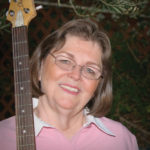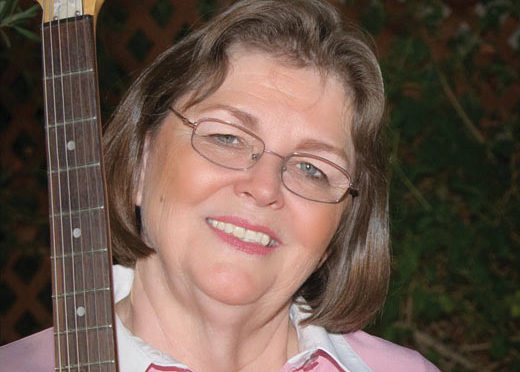 by Madelyn Roberts, AFM Diversity Committee Member and Member AFM Local 586 (Phoenix, AZ)
by Madelyn Roberts, AFM Diversity Committee Member and Member AFM Local 586 (Phoenix, AZ)
On a recent drive from Phoenix to Albuquerque in my faithful steed, my Subaru Forester, “The Sofa Killer,” I had a seven-hour opportunity to reflect on a February meeting of the AFM’s Diversity Committee. Established in 2002, and encouraged to build upon the work already accomplished in its predecessor, the AFM Diversity Council, this year-round committee works to encourage and develop communication and understanding among all musicians. The committee’s ultimate goal is to develop an effective coalition of musicians from all walks of life, ethnicities, and musical genres, built upon mutual respect for the intrinsic value of the many roles we musicians play within the fabric of our human culture. In our numbers there is great strength, if we only martial it to make the lives of all musicians better, healthier, and more secure—more solid.
Playing classical music as a violinist in orchestras, and performing folk music, rock and roll, western swing, country, funk, and jazz on guitar, I have seen most of this country. I have seen most of the attitudes musicians display toward other musicians, whether friends, colleagues, or unknown nobodies. Consequently, as a member of the Diversity Committee since its inception, I have observed from a perhaps unique frame of reference, how we humans relate to each other. For instance, I have seen how others react to me when I am a “nobody.” Quite often, the response is a perfunctory and soon forgotten acknowledgment of my existence. I have also seen how they react when they find out that I am a “somebody”… at least in their eyes … because I am related to a famous and iconic “somebody.” In those circumstances, some of the same folks suddenly find me interesting, fascinating, clever, and now, somehow worthy of their time. Why?
If you, like me, have gone through the process of losing weight to the point of radically changing your appearance, you already know that some of those individuals to whom you were a “nobody” now treat you with a new level of respect, deference, and civility. You are a new “somebody.” Interesting, but I see these shifts in attitude to be disingenuous.
One time, when I was on the road with my band, someone approached the bandstand during a break and asked my co-leader husband, “Hey, my first cousin is (insert name of famous country star), so can I get up on stage during the break and play her guitar?” The “her” was me. When he was directed to ask me that question, I explained to the gentleman, “Yes, you can play the guitar if you just give me $3,000 to hold in case something happens to it, then give me the keys to your car so I can quickly drive down to the Circle K, buy a six-pack of beer, and slam it down before I have to go back on stage.”
He stared at me, bewildered, as if he’d never seen a space alien before. Those same people who see me and think, “Oh, a middle-class housewife can’t play guitar!” are happily perplexed when I go onstage and give them an exciting and satisfying performance.
I’m almost really old now, and I still like to go onstage and tear it up and make those people dance. True, I still am 15 in my head, but that is all to the good. I’m still silly enough to believe that a broad coalition of musicians can exist and make the world a better place. The people on your AFM Diversity Committee have always been, and continue to be, dreamers of the same ilk. We believe such partnerships within our AFM can change our world with solidarity and a fundamental ability to trust each other.
By the way, The Sofa Killer told me an interesting story on our way back home from Albuquerque. (Or, at least I think she told me. Perhaps it was too many hours of driving, and being in my own head.) She said, “Did you know the old story about herds of wild horses being led by their stallion is not true?” I said, “Well, how about My Friend Flicka and all those Saturday morning westerns?” She said, “Not true. The herd is always led by an old woman horse, a mare. The stallion trails the herd to make sure none of the other male horses can get close to his women.” I was shocked. “Then, what is the stallion always doing on television, running full tilt at the head of the pack with his mane and tail streaming gloriously in the wind?” Sofa Killer said, quite simply, “Just showing off.”


